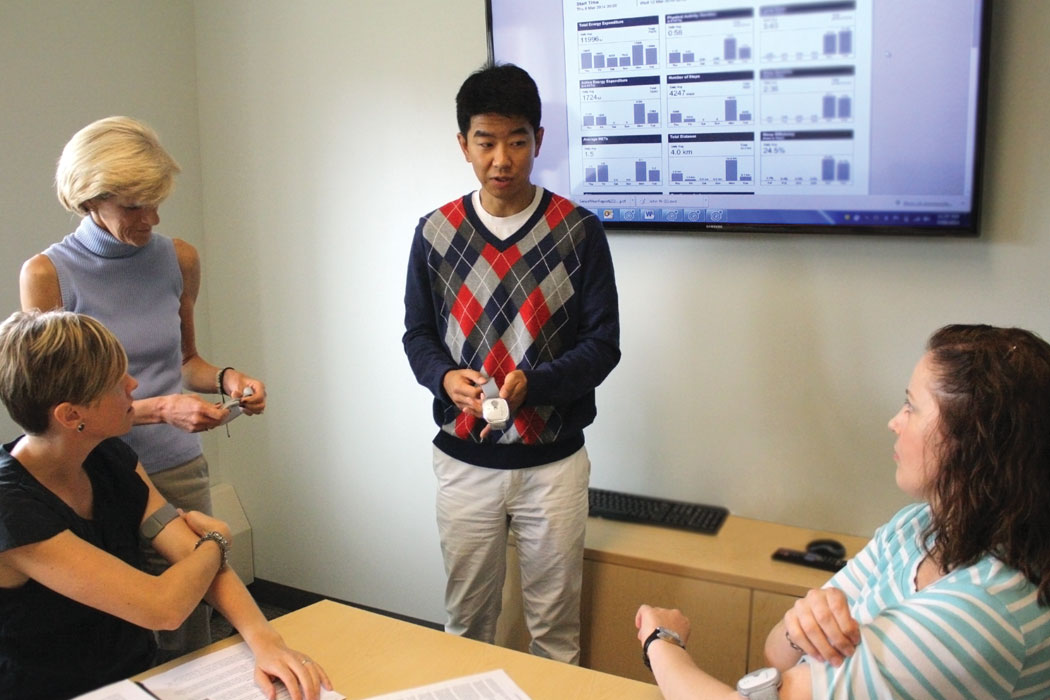
A family-school partnership program shown to improve children’s behavior, academics and social skills will now take a seat at the table of another early childhood challenge.
CYFS researchers recently earned two grants to study whether obesity among children ages 3-5 can be curbed by a collaborative intervention known as Teachers and Parents as Partners, or TAPP.
The pilot studies will help determine TAPP’s potential to reduce obese children’s body mass index, a common measure of obesity calculated from height and weight. They will also examine how the intervention affects children’s physical activity and dietary habits, especially their consumption of foods high in sugar and saturated fat.
The teams will measure children’s energy expenditure via sophisticated belt-like devices known as actigraphs. Regular reports from parents and teachers will help track children’s eating behavior.
“As many as one in four preschoolers are overweight or obese, and these children tend to grow up to be overweight or obese as adults,” said Brandy Clarke, a CYFS research assistant professor. “This also places them at risk for a host of negative outcomes: diabetes, high blood pressure, even cancer. Changing these trajectories will have a big impact on children’s health and help to address the widespread obesity epidemic.”
Led by Clarke and CYFS director Susan Sheridan, the research teams include Terry Huang, professor of health promotion, social and behavioral health at the University of Nebraska Medical Center, and Jung-Min Lee, a visiting faculty member of health, physical education and recreation at the University of Nebraska at Omaha.
In addition to measuring activity and diet, these interdisciplinary teams will assess whether participating parents, preschool educators and daycare providers adapt their practices and environments to help children reach a healthier BMI.
According to Clarke, a combination of webcams, surveys and direct observation will provide insights on changes in food purchases, meal-time routines and exercise opportunities. These tools will also allow the researchers to study how adults model, monitor and reinforce behavior.
Clarke noted that previous studies have demonstrated multifaceted benefits of the TAPP approach, which was developed by Sheridan and formerly called Conjoint Behavioral Consultation. The collaborative decision-making and information-sharing that defined its prior success, Clarke said, could make TAPP especially suited to combat a problem that demands consistency across the classroom and living room, lunch table and dinner table, playground and backyard.
“Childhood obesity is a complex issue. Addressing this problem requires a similarly comprehensive approach,” said Clarke. “Creating positive continuity among the many important individuals and contexts that influence children’s development can have a large impact in supporting habits that promote lifelong health.”
The studies received funding from the intercampus Nebraska Research Initiative and the Society for the Study of School Psychology, which named Clarke a recipient of its Early Career Research Award.